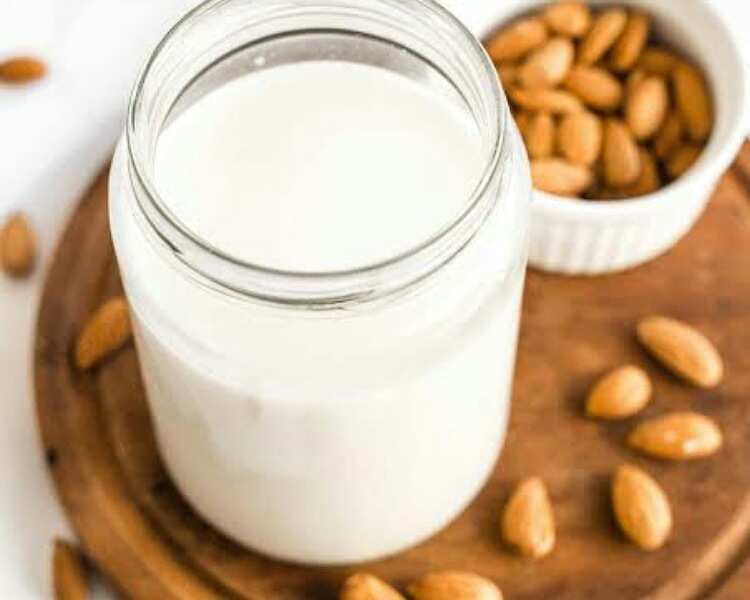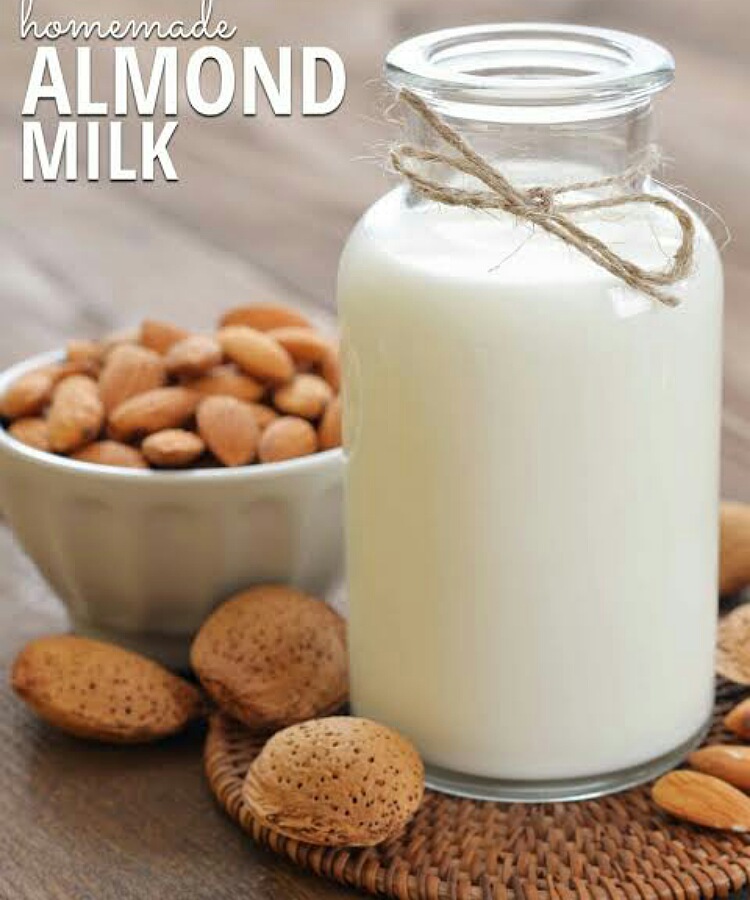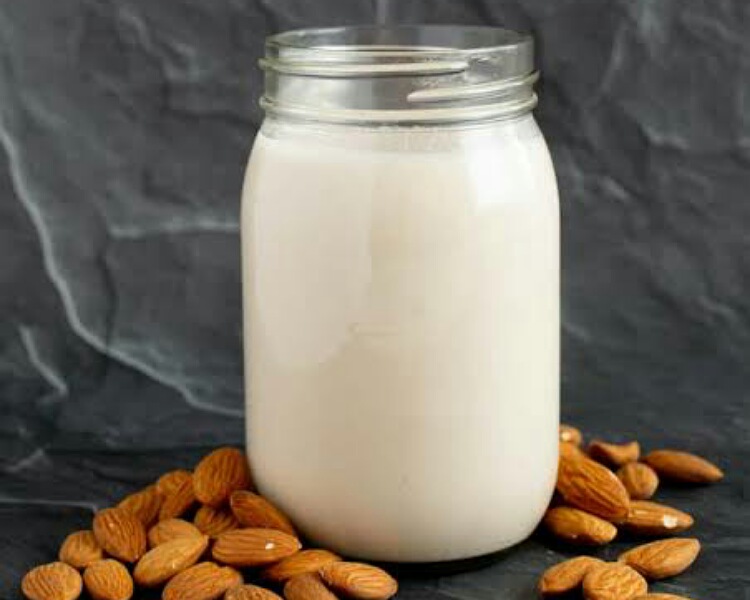Almond milk! It has different connotations in different cultures. What exactly is almond milk? What are its advantages and nutritional values? How is cow milk vs almond milk?
Almond milk and its different connotations
When one says almond milk, the literal meaning is milk made out of almonds. Just like how soy milk is procured from soybeans. It is plant-origin non-dairy milk and hence has no cholesterol in it.
But often in many Asian cultures, almond milk implies dairy milk flavored with ground almonds. Unlike real almond milk, almond-flavored milk has cholesterol, lactose, and more saturated fats.

Hence almond milk is good for people who have an intolerance to lactose or are allergic to cow milk protein.
Almond milk is prepared by blending water and soaking (overnight) almonds in a blender and filtering out the solids to obtain a milky liquid. Homemade almond milk is healthier since it has no added sugars.
But compared to almonds the amount of fiber in almond milk is less. The protein is also just 1/8 of what it is in whole almonds.
Cow milk vs almond milk
Vegans avoid dairy products. Some people do not like the taste and smell of cow’s milk. And some are lactose intolerant or have cow milk allergies. For all these people, almond milk is good.
10 grams of almond milk has 15 calories, 0.59 g of proteins, 1.10 grams of fats, and 0.58 grams of carbs. 250 ml of cow milk gives 149 cals while unsweetened almond milk provides only 39 calories.
Proteins in the same amount are 7.69 g and 1.55 g respectively. In cow milk vs almond milk, fats are 7.93 vs 2.88 grams. And saturated fats are 4.55 vs 0.21 grams.
Carbs are 11.71 grams in cow milk and 1.52 g in almond milk. Almond milk has no sugars but cow’s milk has 12.32 grams of sugar in 250 ml.

Calcium in almond milk is double the amount in cow’s milk. Potassium is 176 mg, sodium is 186 mg, and vitamin A 372 IU. There is no vitamin B12 in almond milk. It has 110 IU of vitamin D with zero cholesterol.
Almond milk has additional vitamin E. Due to less protein in almond milk, it is not recommended for children less than 2 years.
Benefits of milk from almonds
Being plant milk, it has all the benefits for health due to this. It has a nutty pleasant flavor and a creamy texture. But the nutrients are lesser in it compared to whole almonds.
It has vitamin E and other vital vitamins and minerals. It also contains antioxidants that have benefits for the heart, skin, gut, and brain.
Read more about Bananas and milk: the good, the bad, and the ugly!

Almond milk has low calories and can serve as a milk substitute for weight slimmers. Additionally, this milk is good for diabetics because it does not raise blood sugar significantly.
Due to zero lactose, allergic and intolerant people can safely consume it. It’s more calcium is good for bone health. It makes bones stronger. It has healthy fats and no cholesterol.
Therefore it keeps cardiovascular diseases at bay. Vitamin E reduces body inflammation too. The enriched and fortified almond milk with no added sugar is better and people can consume it daily for health reasons.
